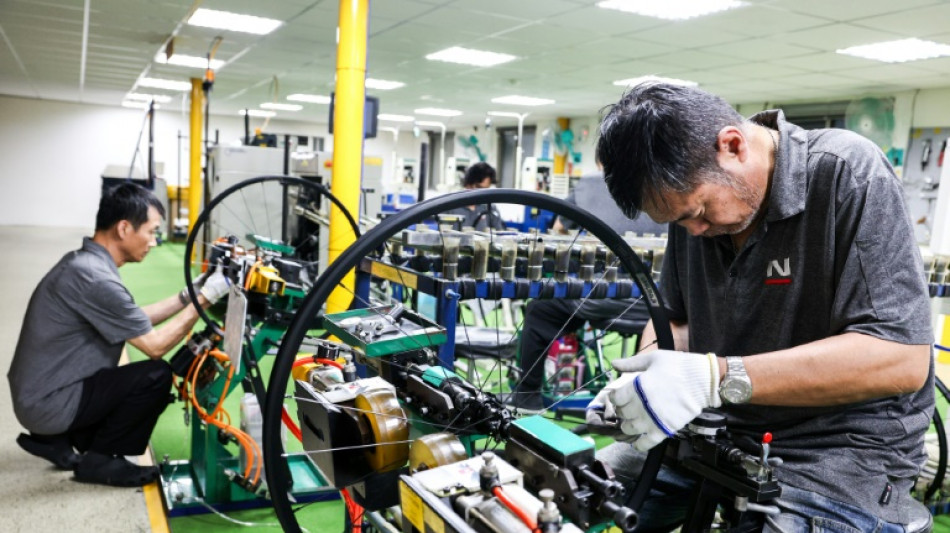
-
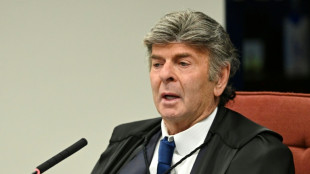 2-1: First not-guilty vote in Bolsonaro coup trial, two to go
2-1: First not-guilty vote in Bolsonaro coup trial, two to go
-
Informing parents not enough to fight childhood obesity: study
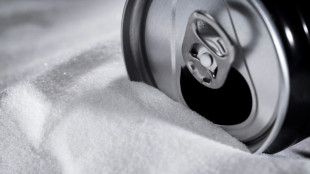
-
 Israel film debuts in Toronto after festival uncertainty
Israel film debuts in Toronto after festival uncertainty
-
South Africa beat England by 14 runs in rain-marred 1st T20

-
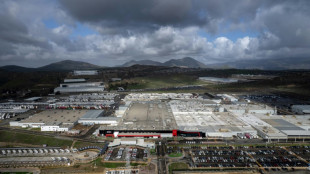 Under US pressure, Mexico mulling 50% tariff on Chinese cars
Under US pressure, Mexico mulling 50% tariff on Chinese cars
-
S&P 500 ends at record as markets await key US consumer price data
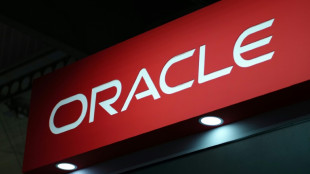
-
 Rested Pogacar warms up for world championships in Canada
Rested Pogacar warms up for world championships in Canada
-
Right-wing Trump ally Charlie Kirk shot dead at US university
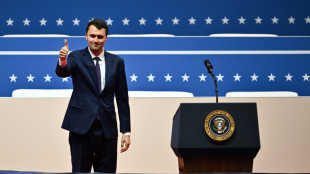
-
 South Africa smash 97-5 in rain-marred T20 opener against England
South Africa smash 97-5 in rain-marred T20 opener against England
-
NASA blocks Chinese citizens from working on space programs
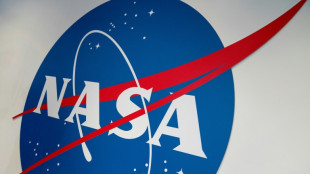
-
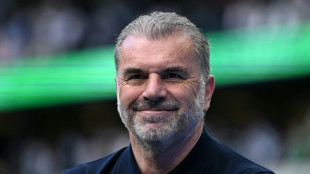 Postecoglou wants to bring trophies to Nottingham Forest
Postecoglou wants to bring trophies to Nottingham Forest
-
Union to vote on deal to end strike at Boeing defense branch
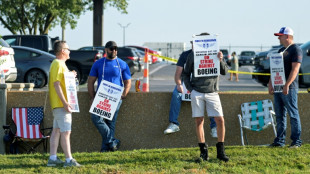
-
 British Olympic medallist Proud joins drug-fuelled Enhanced Games
British Olympic medallist Proud joins drug-fuelled Enhanced Games
-
Israeli strikes on rebel-held Yemen kill 35

-
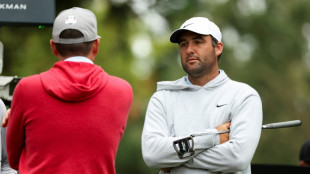 Scheffler has dual goal in first US PGA Tour start in Napa
Scheffler has dual goal in first US PGA Tour start in Napa
-
US pharma giant Merck ditches plan for $1.4-bn research centre in UK
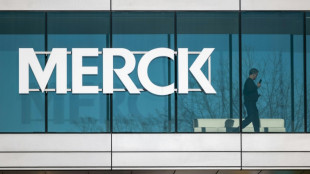
-
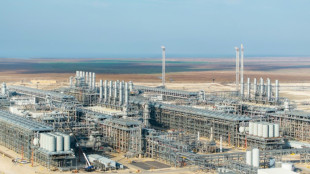 Study warns US emissions progress may flatline
Study warns US emissions progress may flatline
-
Bradley hones Ryder Cup strategy as US team bonds in California
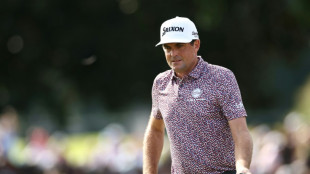
-
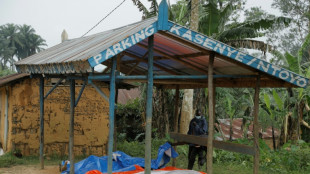 Victims buried after IS-linked attack in DR Congo
Victims buried after IS-linked attack in DR Congo
-
Prince Harry meets King Charles for first time since 2024

-
 Veteran Vardy ready to silence doubters in Cremonese adventure
Veteran Vardy ready to silence doubters in Cremonese adventure
-
Speckled Martian rocks 'clearest sign' yet of ancient life
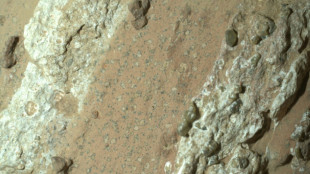
-
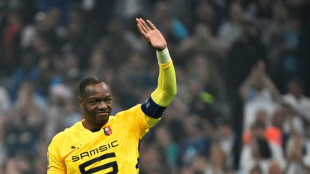 Ex-France goalkeeper Mandanda calls time on club career
Ex-France goalkeeper Mandanda calls time on club career
-
'Anguish' as Cuba plunges into new electricity blackout
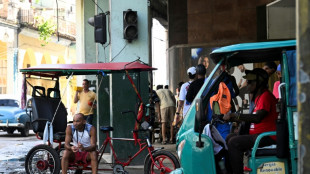
-
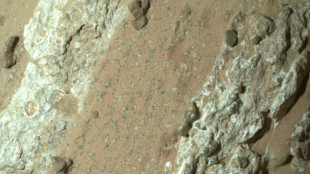 Martian rocks offer clues that might indicate ancient life
Martian rocks offer clues that might indicate ancient life
-
Kuldeep stars as 'clinical' India crush UAE in Asia Cup T20

-
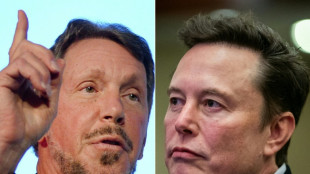 Musk's title of richest person challenged by Oracle's Ellison
Musk's title of richest person challenged by Oracle's Ellison
-
New French PM vows 'profound break' with past as protests flare

-
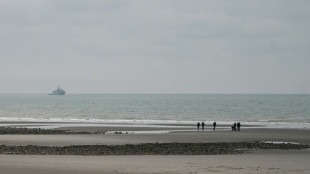 Three migrants dead, three missing in Channel crossing attempts
Three migrants dead, three missing in Channel crossing attempts
-
Kuldeep stars as India crush UAE in Asia Cup T20

-
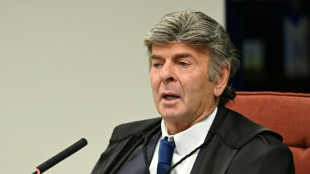 Bolsonaro judge criticizes trial, warns of 'political' verdict
Bolsonaro judge criticizes trial, warns of 'political' verdict
-
Italy's Pellizzari scorches to Vuelta stage 17 honours

-
 Nine dead in Israeli strikes on rebel-held Yemen
Nine dead in Israeli strikes on rebel-held Yemen
-
Italy to remain top wine producer in world: 2025 estimates
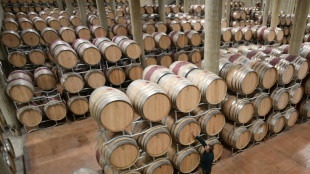
-
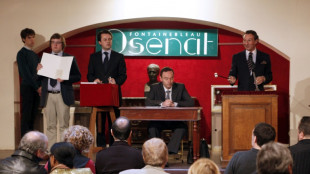 400-year-old Rubens found in Paris mansion
400-year-old Rubens found in Paris mansion
-
Pellizzari takes Vuelta stage 17 honours

-
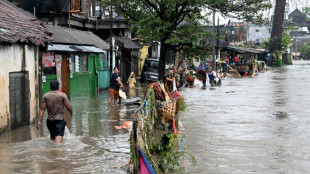 Deadly floods inundate Indonesia's Bali and Flores islands
Deadly floods inundate Indonesia's Bali and Flores islands
-
Syrian jailed for life over Islamist knife attack at German festival
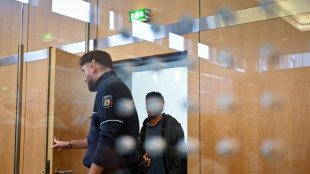
-
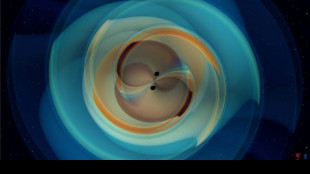 Gravitational waves from black hole smash confirm Hawking theory
Gravitational waves from black hole smash confirm Hawking theory
-
Israel launches deadly strike on Yemen rebel media arm

-
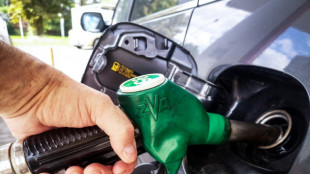 Fossil energy 'significant' driver of climate-fuelled heatwaves: study
Fossil energy 'significant' driver of climate-fuelled heatwaves: study
-
Oldest known lizard ancestor discovered in England
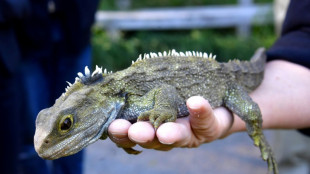
-
 Smoke from 2023 Canada fires linked to thousands of deaths: study
Smoke from 2023 Canada fires linked to thousands of deaths: study
-
Software company Oracle shares surge more than 35% on huge AI deals
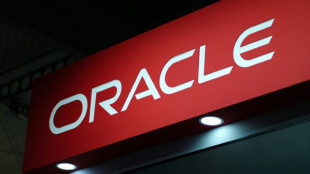
-
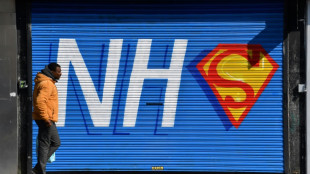 UK aims to transform Alzheimer's diagnosis with blood test trial
UK aims to transform Alzheimer's diagnosis with blood test trial
-
US Senate panel advances nomination of Trump's Fed governor pick
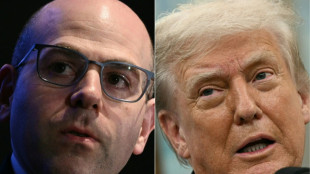
-
 Israeli strikes shake quiet Qatar, strain US ties
Israeli strikes shake quiet Qatar, strain US ties
-
Russian drones in Poland put NATO to the test
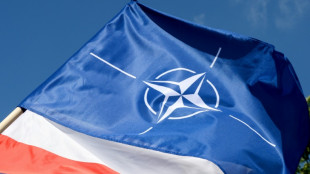
-
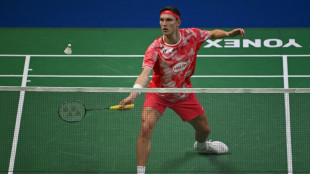 Emotional Axelsen well beaten on return from six months out
Emotional Axelsen well beaten on return from six months out
-
US producer inflation unexpectedly falls in first drop since April
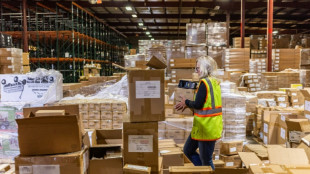

Taiwan bicycle makers in limbo as US tariff threat looms
Weeks after Donald Trump's global tariff bombshell, Jeff Chen's factory in Taiwan is as busy as ever turning out carbon and alloy wheels for high-end bicycles bound for US and European markets.
But he wonders how much longer it will last.
The US president's initial 32 percent tariff on Taiwan stunned the island's bicycle manufacturers, who were racing to meet orders ahead of the northern summer before the new toll was announced.
Some US customers immediately cancelled or postponed shipments, only to reverse their decision when the hefty tariffs on Taiwan and many of America's trading partners were paused for 90 days.
With a global 10 percent levy still in place and no clarity on what happens once the three months are up, Taiwanese bicycle companies and US buyers are in limbo.
"They don't know what to do. There's no time to respond," said Chen, general manager of Joy Group, which makes wheels and hubs in Taichung.
Joy Group, founded by Chen's grandfather in 1971, is one of more than 900 companies assembling bicycles or making components, including wheels, pedals and frames, mostly in central Taiwan, the island's manufacturing heartland.
Some companies have received a surge in orders as US customers rush to import bicycles and components before the end of the 90-day period.
Others, like Joy Group, have seen little change in demand, which Chen put down to inventory leftover from Covid-19, when retailers stocked up to meet surging demand for bicycles.
Chen said US customers had passed on the 10 percent tariff to consumers, but a 32 percent levy could put the brakes on further orders, with inevitable knock-on effects in Taiwan.
- 'Hidden champions' -
"If we are getting affected, then the company would need to think how to cut down... everybody will be facing the same issues," said Chen, whose company also has four factories in China.
Taiwan has long been a key player in the global bicycle industry, but it faced an existential crisis more than two decades ago when an ascendant China drew many of the island's manufacturers to its shores.
Rather than try to compete with China's cheaper, mass-produced two-wheelers, Taiwanese companies collaborated to upgrade their manufacturing techniques and produce quality bikes and components for high-end markets, mainly in Europe and the United States.
While Taiwan's export volume has fallen dramatically from around 10 million in the 1990s to 1.3 million in 2024, exacerbated by the pandemic glut, the average export price of its bicycles has risen sharply.
A traditional bike was valued at US$1,131 last year and an e-bike US$1,848, industry data and analyst reports show.
China, which exported more than 44 million bikes in 2024, had an average price of US$57.
Taiwan bicycle industry expert Michelle Hsieh said the island's success in targeting the high-end market was down to "hidden champions" in the supply chain.
Small and medium-sized companies -- a hallmark of Taiwan's manufacturing sector -- were highly specialised and flexible, Hsieh said, making them "indispensable" in the global market.
"They are making things that other people cannot make so they have that competitive advantage," said Hsieh, a sociologist at Academia Sinica in Taipei.
Trump's hopes that higher tariffs will force firms to move their production to the United States were dismissed by Taiwanese and American bicycle manufacturers as fanciful.
- 'Like a big family' -
It would be "nearly impossible" to set up a factory in the United States in the next three to five years, Taiwanese bicycle company Giant told AFP, citing higher costs, labour challenges and the lack of a "bicycle industry cluster".
"Taichung is the absolute centre of the bicycle industry," said Tim Krueger, industry veteran and chief executive of US-based Esker Cycles, which imports frames and parts from Taiwan for its mountain bikes.
"That's where the expertise in the whole world is on how to properly manufacture bicycles."
Some bike makers in Taiwan look set to benefit from the 145 percent tariff on Chinese products in the short term, with US customers seeking out Taiwanese suppliers, Hsieh said.
But Tsai Po-ming of the Cycling & Health Tech Industry R&D Center, which was set up in 1992 to help Taiwan's industry become more competitive, said there could also be negatives.
Chinese manufacturers might try to offload their lower-end bikes in Europe if Trump's tariffs fuelled inflation, Tsai told AFP.
"Consumers might feel that the prices are too high, and although our products are mid to high-end in quality, they might prefer to buy lower priced models instead," he said.
At Pacific Cycles' factory near Taipei, workers assembled fold-up bicycles mostly destined for Europe and Asia.
While the company has little direct exposure to the US market, president Eva Lin said if one of its suppliers was hurt by the tariffs, then Pacific Cycles would be affected.
"The complete industry is like a big family," she said.
"No one can escape from the impact."
B.AbuZeid--SF-PST

